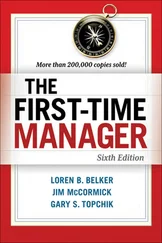Джон Болл - The First Team
Здесь есть возможность читать онлайн «Джон Болл - The First Team» весь текст электронной книги совершенно бесплатно (целиком полную версию без сокращений). В некоторых случаях можно слушать аудио, скачать через торрент в формате fb2 и присутствует краткое содержание. Год выпуска: 2013, Жанр: Триллер, на английском языке. Описание произведения, (предисловие) а так же отзывы посетителей доступны на портале библиотеки ЛибКат.
- Название:The First Team
- Автор:
- Жанр:
- Год:2013
- ISBN:нет данных
- Рейтинг книги:5 / 5. Голосов: 1
-
Избранное:Добавить в избранное
- Отзывы:
-
Ваша оценка:
- 100
- 1
- 2
- 3
- 4
- 5
The First Team: краткое содержание, описание и аннотация
Предлагаем к чтению аннотацию, описание, краткое содержание или предисловие (зависит от того, что написал сам автор книги «The First Team»). Если вы не нашли необходимую информацию о книге — напишите в комментариях, мы постараемся отыскать её.
Student protesters are being slaughtered in the Midwest.
The Jewish pogroms have begun.
You are now living in Soviet — occupied America!
One nuclear submarine and a handful of determined patriots against the combined might of Russia and Soviet-occupied America… The Most Explosive and Gripping “What If” Novel of Our Time!
First published January 1971
The First Team — читать онлайн бесплатно полную книгу (весь текст) целиком
Ниже представлен текст книги, разбитый по страницам. Система сохранения места последней прочитанной страницы, позволяет с удобством читать онлайн бесплатно книгу «The First Team», без необходимости каждый раз заново искать на чём Вы остановились. Поставьте закладку, и сможете в любой момент перейти на страницу, на которой закончили чтение.
Интервал:
Закладка:
“But!”
With that single word his voice became a bark, a declaration of iron authority without mercy or flexibility.
“If any one of you, in any way at all, attempts to” — he searched for a word and found it —“impede, you will be dealt with immediately and drastically. There will be no playacting; you will accept and obey. If you do this, it is possible that you will also learn. That would be very good for you.”
He stopped deliberately, waiting a long moment to see if anyone present would dare to challenge him. Facing him there were only silent people, sitting very still, waiting for him to go on.
It seemed to Hewlitt that the man was gaining courage from his own words, then he looked again and changed his mind. Zalinsky might be an absurdly out-of-place figure in the White House, but his narrow suspicious eyes gave no hint of softness behind them. In appearance he might look like a Slavic version of a small-time salesman of limited ability, but the man who wore the nondescript suit had a toughness which needed no bolstering by listening to the sound of his own voice. The momentary judgment had been an error; Hewlitt resolved immediately to draw no more such hasty and dangerous conclusions.
“Because you come from a soft society where you have been enjoying ridiculous luxuries at the cruel expense of the masses, you now believe that what has happened to you all is a bad dream, that it will go away in a few days of time.”
Again his voice hardened and the muscles of his jaw became tense. “It will not be gone — ever. Your militarists, your imperialist warmongers dared to challenge us, we who have the force of all the people behind us. We were patient for a long time. We demonstrated what we could accomplish, but you would not heed the warning. You refused to learn. Because you had never been defeated, not until the determined revolutionary people of Vietnam rose up and made you ridiculous before all the world. Even then you tried to pretend that you had not been defeated, that our skillful propaganda had not eaten the heart out of your will to fight. You were reduced to confusion and indecision while we grew stronger because of our unshakable determination.”
It was at that point that Hewlitt sensed that the man before him was delivering a prepared speech, one which had been written for him. The change in grammar was obvious, and so was the way in which he spoke the words. Hewlitt did not alter the expression on his face, but hidden deep within himself he found a minute ray of hope. This man was not infallible, nor were the people who had sent him here.
“There will now be work for all of you to do in rebuilding this country as you will be taught to do. You will follow orders absolutely; there is no other way. If you do not, you know what to expect.”
He is repeating himself, Hewlitt thought.
Zalinsky looked up. “You have here an interpreter who is fluent in my language. Where is the man Hewlitt?”
It was not a question — it was a demand. Hewlitt raised his hand just enough to identify himself, then he put it down again. He was watching his own every move now with meticulous care — what he did, what he might say, even the shape of his secret thoughts. He could not afford even one mistake and he did not intend to commit any.
“You will wait until I send for you in your office,” Zalinsky said. “I will give work*to you. Do you understand?”
Hewlitt had never doubted for a moment that somehow this absurd nightmare would be swept aside, that the United States as he knew it would emerge triumphant, and that this untidy little man would be dealt with one way or another. He saw at that precise moment a minute opportunity to launch the counterattack; without thinking further he took it.
“Yes, sir,” he said, only loudly enough to be heard clearly. He kept the tone of his voice totally respectful.
He looked up to find himself staring into the man’s rigidly hostile eyes. “What did I tell you?” Zalinsky demanded.
Hewlitt swallowed hard. “Yes, Mr. Zalinsky,” he said.
For a second or two there was total silence. Once more Zalinsky stared through Hewlitt, his face clamped in a hard mask. “You will make no more mistakes,” he directed.
There were no more challenges, none whatsoever. Satisfied, Zalinsky pulled down the edges of his coat, waited until he was fully ready, and then said curtly, “You will go.”
2
Back in the confines of his small office Hewlitt faced up to the fact that what he had been accepting as a nightmare had been resolved into harsh reality. Up until now he had never really believed the things that had happened; it had always seemed that in some miraculous way everything would be set right in time for a triumphant finish. But there had been no triumph, just as there had been no long-range supersonic bombers, no intensive radar surveillance, no stockpiles of needed materiel.
He drew a deep breath, held it, and then let it out slowly as he remembered once more to keep his emotions under control. If ever in his life he had need of his self-possession it was now; he had no way of knowing what demands might be made upon it even before the day was out.
He looked at the pile of work he had begun and decided against putting any more effort into it. He could not think of any possible good his notes would be to anyone, including himself. For a moment he felt bitter frustration; he had put in long years of intense work learning a very difficult language to the point where he could read and understand intricate technical manuals and other involved material. All that was by the board now unless, perhaps, this language of the conquerors would become a compulsory means of communication. In that event he would have a long head start, but he could not see how it could possibly do him any good except to spare him some additional labor.
He forced himself to be logical. Because of the peculiar nature of his work and its sensitive environment, he knew much more than had ever appeared in the newspapers or in the television analyses with which the nation had been deluged during the past months. He leaned backJn his chair, deliberately shut his eyes, and began to retrace in his mind some of the things that had made the difference. He did not want to do this, but he felt that he must. He forced his mind to sort out and play back the salient facts that he had stored there, facts which he had tried to ignore because they were unpleasant and because the conclusions toward which they had pointed had been unacceptable.
Unacceptable then, but now reality.
He was not certain where it had all begun, but the Marc Orberg draft case offered a good starting point. That had opened the door to much that had followed.
Marc Orberg had separated himself from the conglomeration of other folk singers by walking stark naked onto the stage of Town Hall in New York to begin his announced concert. He had stood there, holding his twelve-string guitar by his side, until the shock had bounded and rebounded from the walls and the audience had been hushed. Then in his familiar voice he had spoken into the microphone.
All right, you all know me or you wouldn’t have come here to hear me sing — right?”
There had been some response to that, some of the sounds of agreement.
"And you all know that I’m a man, just like all my other fellow-men all around the world — right?”
That had generated a heartier response. “Right.”
“Well I’m not ashamed of it; the time to be ashamed is when you’re not a man — or a woman. So why pretend ?”
A small uproar had answered that, and in it there had been many feminine shrieks of approval.
“Now let the cops come in here and arrest me if they dare. They can’t, and you know they can’t.” He had stopped deliberately then and had casually strummed the opening chords of the black rock song that had first made him famous. “A lot of people have stood on this stage, all dressed up to make them look like something they weren’t. Or to hide what they were. Well they’ll all remember the day that Marc Orberg came here because in what I do, and in what I am, and in what I sing. I’ve got nothing to hide.” Then he had gone on with his concert.
Читать дальшеИнтервал:
Закладка:
Похожие книги на «The First Team»
Представляем Вашему вниманию похожие книги на «The First Team» списком для выбора. Мы отобрали схожую по названию и смыслу литературу в надежде предоставить читателям больше вариантов отыскать новые, интересные, ещё непрочитанные произведения.
Обсуждение, отзывы о книге «The First Team» и просто собственные мнения читателей. Оставьте ваши комментарии, напишите, что Вы думаете о произведении, его смысле или главных героях. Укажите что конкретно понравилось, а что нет, и почему Вы так считаете.












